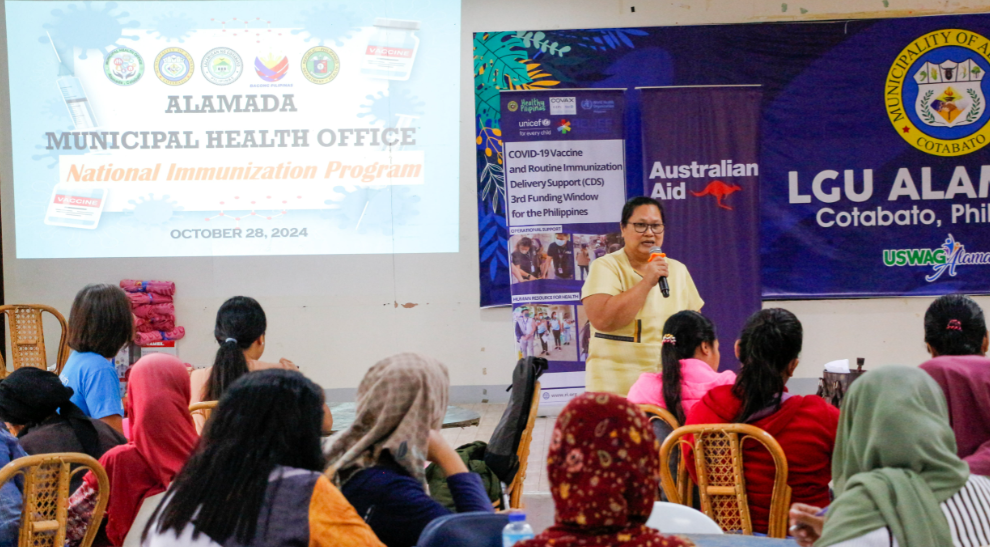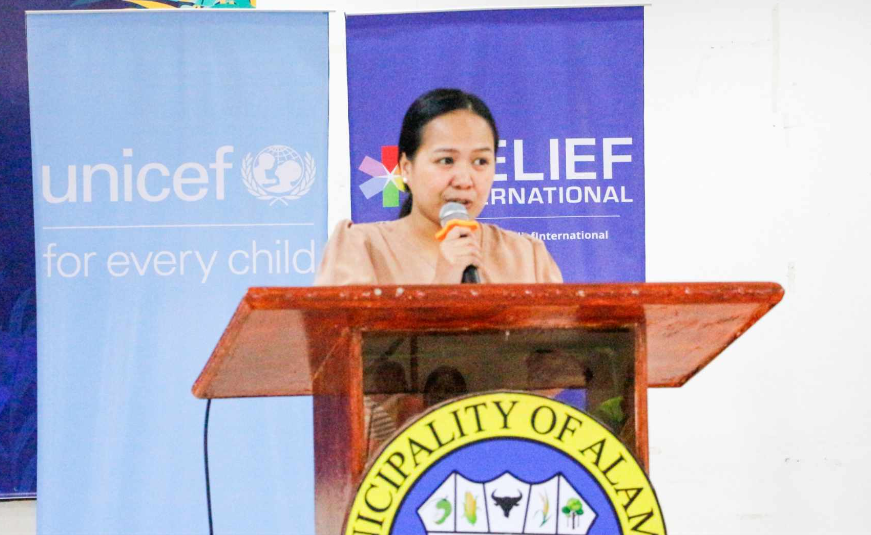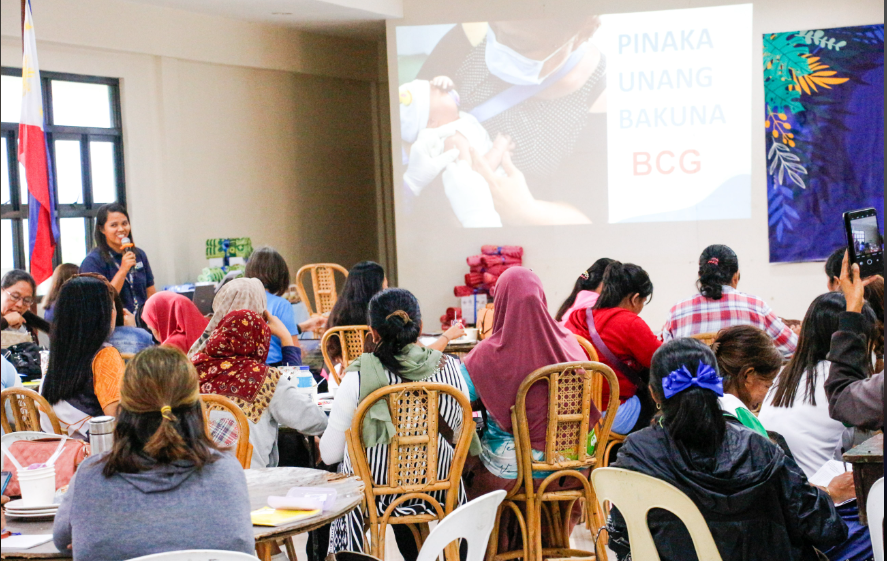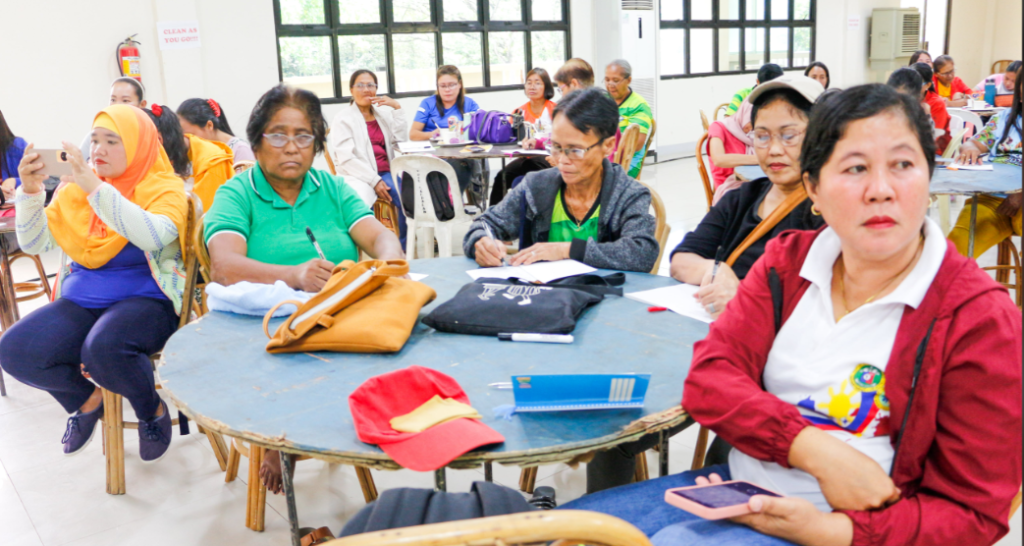The Rural Health Unit of Alamada, led byDr. Aiza Encajonado, conducted the training on Interpersonal Communication for Immunization and Demand Generation for Barangay Health Workers and Barangay Nutrition Scholars from the 17 barangays of the municipality, held at the Settlers Hall, Municipal Building, Alamada, Cotabato on October 28-30, 2024. The training was made possible through the support of UNICEF and DFAT, in partnership with Relief International (RI) and in collaboration with the National Immunization Program (NIP). The activity aimed to equip Barangay Health Workers (BHWs) and Barangay Nutrition Scholars with essential communication and interpersonal skills to address vaccine hesitancy and promote informed immunization choices within their communities.
The one-day training encompasses various interactive methods, including presentations, group discussions, and practical workshops. Participants not only learn theoretical principles of effective communication but will also practice these skills through real-world applications. Immunization is a cornerstone of public health, protecting communities from preventable diseases and fostering overall well-being. However, achieving high immunization rates often requires more than just providing vaccines; it necessitates effective communication, particularly in localized contexts such as barangays.

Effective communication is critical in any health initiative, especially in immunization campaigns. The ability to convey critical information about vaccines, address community concerns, and dispel myths can significantly increase vaccine uptake. Barangay health workers and nutrition scholars play a vital role in this process as they interact directly with community members, making their communication skills essential for the success of immunization efforts. Training barangay health workers and nutrition scholars in interpersonal communication is an essential step toward enhancing immunization rates.
By empowering these healthcare workers with effective communication skills, we can foster an environment of trust and understanding, leading to increased demand for vaccines. Ultimately, these efforts contribute to healthier communities, reducing the incidence of preventable diseases. As we move forward, continuous support and refreshers in communication training will be crucial to adapt to evolving community needs and challenges in immunization efforts.







